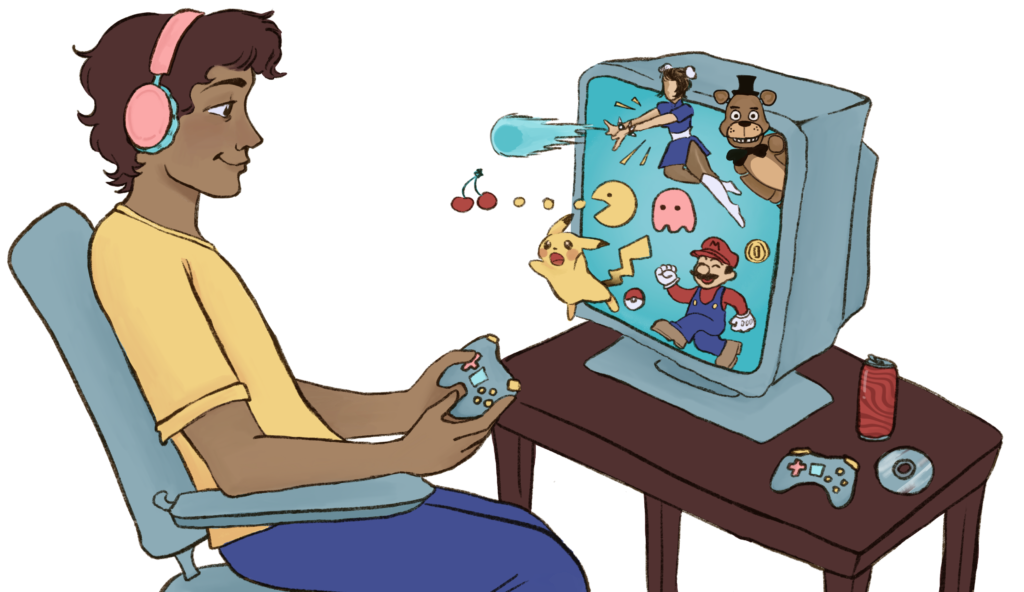
Alexa Sterry
Online gaming has changed significantly since the invention of the first digital game, “Tennis for Two,” in 1958. Nowadays, there are millions of online gamers spanning the globe and thousands of games in existence. The diversity of the online gaming community has led to heightened discussion on the benefits and flaws of the gaming community.
“I don’t think I would be quite as happy if I weren’t to play video games,” said junior Charlie Birkelund, president of Super Smash Bros Club. “During school … I’m not that excited to be here, but then I’ll think … ‘I get to play a video game later’ [and] it makes me excited about things.”
Playing video games not only gives gamers something to be excited about but also helps to build deeper relationships with gaming as a common interest.
“I became friends with certain people at school through video games,” said junior Anthony Lu. “I played with them a few times, and then I realized that they were really chill [people], and I met up with them in person, and we became friends in real life.”
Along with establishing new relationships, gaming also helps in strenghtening existing ones.
“One of my best friends … moved to London [two years ago] and I [thought] I’m not gonna be able to hang out with him anymore,” Birkelund said. “But then I was able to hang out with him again through video games.”
Social contact in a digital space also helps students feel more socially equipped for their social interactions in real life.
“It just helped me… talk to a lot more people [in person] because I talked to many people in games,” said freshman Kai Green.
In the stressful world of high school, gaming can serve as an outlet for students in need of a break.
“It’s something that … I find really relieving,” Lu said. “[Gaming] can remove some stress and it’s something that I can go and forget about all the issues I have in my daily life.”
However, the gaming space has many flaws rooted in its community, the industry and the struggle to balance other responsibilities.
Computer science and math teacher Kris Reiss has seen how video games absorb his students’ time — a challenge less prominent when he was a student playing video games.
“I think I was very disciplined as a kid compared to some kids that game a lot,” Reiss said. “I’d just do all my homework, then I would do whatever else I wanted to do … I certainly wouldn’t be playing games at two in the morning. I’ve had some students that are kind of addicted to games.”
Senior Emily Ren noticed firsthand that her gaming was interfering with her work habits.
“I kind of cut down on video games this year because … as a senior you have a lot more responsibilities in terms of academics and grades,” Ren said. “But last year I was very, very video game-heavy … it affected my mental health in the sense that I would push everything to the last minute, just to play games.”
On top of personal challenges, players can experience toxicity from other players that can push them away from a game. In just third grade, Ren quit the video game League of Legends when she and her older brother were attacked by toxic players.
“We had definitely [had] some great troll people … one of them started yelling, [and then] another player started yelling at me because I didn’t know what I was doing,” Ren said. “I was seven years old. I [had] no idea how to play League of Legends … and I quit after that.”
Since then, Ren has continued to experience and avoid toxicity, that isn’t only aimed at her gaming skill but also her gender.
For some, gaming provides an activity to look forward to at the end of the day, an escape from the stresses of everyday life and a method for connecting with friends both new and old. For others, however, difficulty with balancing gaming and work, along withtoxic behavior and communities in-game can make it more difficult for people to play games for their intended purpose — fun.




